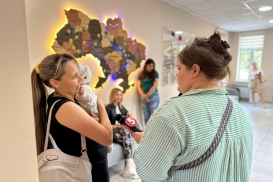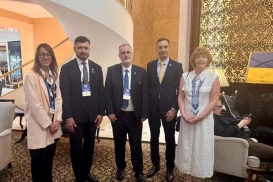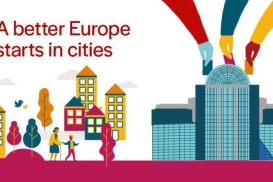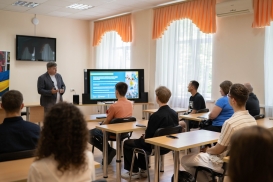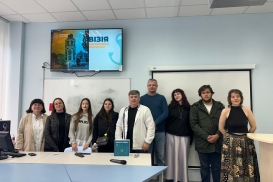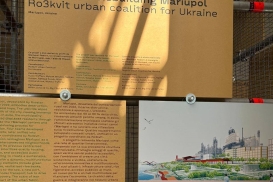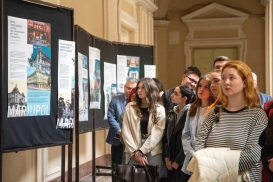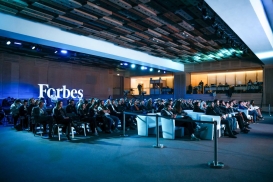Sustainable urban development of small cities of Ukraine in the context of wartime and future reconstruction

The lecture by doctor of philosophy on architecture and urban planning in Martin Duplantier Architects and teacher of Kharkiv School of Architecture Andriy Shtender as part of the Project "Community Recovery Academy" became a deep study of sustainable urban development of small cities in Ukraine in the context of wartime. The professional approach of the speaker combined theoretical developments and practical recommendations for the transformation of the urban environment.
The central idea of the speech was to rethink approaches to urban planning, which goes beyond traditional projection and includes complex interaction of social, cultural, environmental and economic factors. Sterder emphasized that the city is a living organism that needs a complex and human-centric approach.
Analyzing the urban practices of the last century the speaker critically appreciated the post-Soviet heritage of unified buildings, which neglected local features and cultural context. In contrast, he proposed a model of development based on the deep sense of local specificity, preservation of authenticity and implementation of innovative solutions.
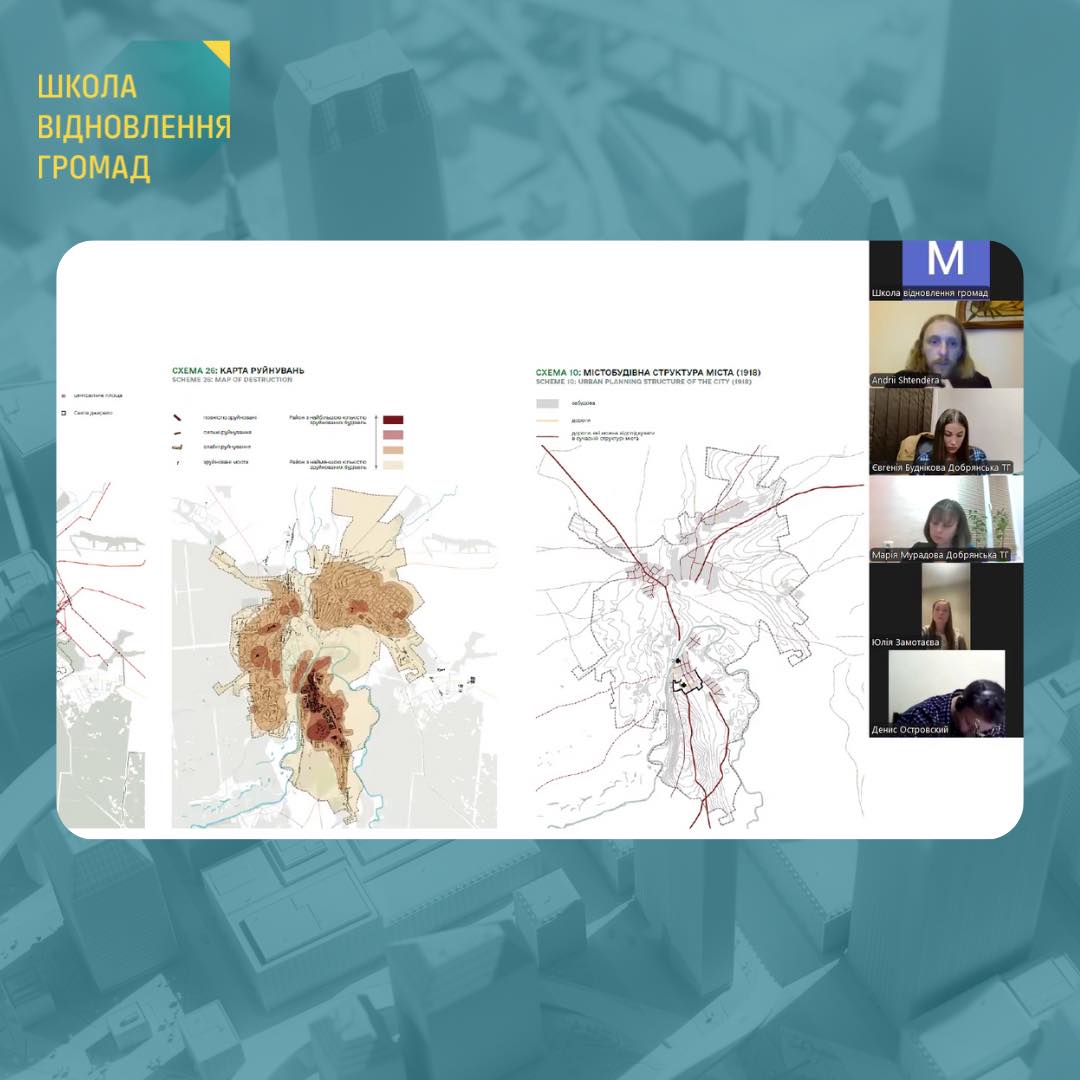
Shterder paid special attention to the European experience of post-war reconstruction, in particular examples of Gavr and Rotterdam, where cities not only restored infrastructure, but also made a quality urban jump. He emphasized that reconstruction is not only a technical task, but also an opportunity for rethinking urban space, introducing modern environmental standards and creating an environment that is comfortable for residents.
The key principles of modern urban development, according to the speaker, are:
- Environmental and energy efficiency, which involves the use of renewable materials, green technologies and rational consumption of resources.
- The availability of spaces that would take into account the needs of different people, including low-mobility groups.
- Partisypitivity is the active involvement of the public in the planning and transformation of the urban environment.
- Conservation and actualization of cultural heritage, formation of local identity through architectural solutions.
The lecturer presented the concept of tactical urbanism as an effective tool for making changes through local, inexpensive interventions. This approach allows you to quickly test and adapt urban spaces, involving the local community in transformation processes.
Among the challenges for Ukrainian cities, Mr. Andriy identified overcoming the unified building, the formation of emotional connection of residents with the urban environment and the creation of multifunctional spaces that contribute to social interaction.
Summing up his lecture, the speaker emphasized that the reconstruction of Ukrainian cities is not only the restoration of physical infrastructure, but also the possibility of creating a new urban reality. It is a comprehensive approach that can be the basis for the formation of cities of the future.
Community Recovery Academy founded by the Association of Ukrainian Cities and NGO Mariupol.Reborn, aims to prepare municipal managers for the recovery period. The project is implemented with the support of the UK government under the UK International Development and the International Republican Institute (IRI UKRAINE) in partnership with Metinvest and SCM. The educational partners of the project are Metinvest Polytechnic and National University "Kyiv-Mohyla Academy".

